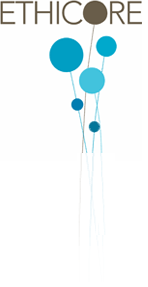By Jo Zaremba
In a muddled world of facts and alternative facts, we need a shared search for truth and meaning between publics, companies and governments. Scientists, economists and other professionals are being questioned, along with their evidence based arguments, diverted by the spread of ‘alternative-facts’ [1]. Now, more than ever before, we need to find a way to position objective and unbiased bodies of evidence to support the key solutions and inform the directions and decisions of companies as well as governments[2]. Within this milieu civil society stands out as a critical force to drive the sustainability agenda.
The tools and approaches for gathering evidence exist. The question is how to apply these mechanisms – in a collaborative way that fashions trust, understanding and participation – with a public who are increasingly suspicious of ‘expert’ opinion. Citizen science offers an opportunity – not only for passive data collection by people, but for engagement in its analysis, and in translating this analysis into action. It also provides the space much needed to create what some believe is the true meaning of ‘shared value’ based on morality and not just a ‘business case’:
Now is the time when those shared values are coming increasingly under threat—in our politics, in our climate, in our communities. (…) With many societal and environmental values under threat, companies will need to make a choice. This can be a transformational moment for the private sector to show how businesses can lead—not just because it’s in their own long-term self-interest, because it’s in the best interest of society. [3]
The call for well informed and substantiated messages will be crucial as will the ability to collect, analyse and present vast and complex data sets to a range of audiences: companies, government and the public [4]. This is a new frontier for civil society and for the private sector, to work with evidence in a truly democratic way, enabling the power of the people, as data collectors and influencers to inform corporate strategy for the benefit of all.
Jo Zaremba is a development professional, specialising in markets analysis and markets based approaches, corporate responsibility, and environmental practices. She is currently Senior Development Manager at Earthwatch Europe.
[1] See for instance Union of Concerned Scientists – http://www.ucsusa.org/news/press-release/EPA-USDA-scientific-integrity#.WKMqYjvyi70.
[2] Anthesis BLOG. The Business Case for Science Based targets. 8 February 2017. http://anthesisgroup.com/business-case-science-based-targets/
[3] Laura Gitman When the Business Case and Shared Value Aren’t Enough, 7 Feb 2017 – https://www.bsr.org/our-insights/blog-view/when-the-business-case-and-shared-value-arent-enough
[4] Anthesis BLOG. The scientific revolution: science-based materiality, and aligning with the SDGs. 08 November 2016 http://anthesisgroup.com/scientific-revolution-science-based-materiality-aligning-sdgs/

